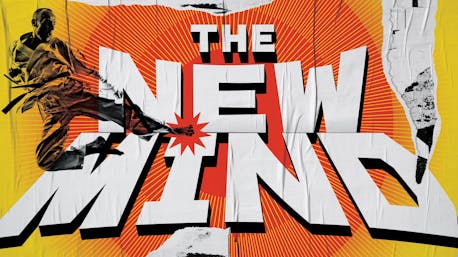This week, I came across this article by David Brooks, which felt like a description of my life journey over the past 10-12 years:
But in the lives of the people I’m talking about — the ones I really admire — something happened that interrupted the linear existence they had imagined for themselves. Something happened that exposed the problem with living according to individualistic, meritocratic values.
Some of them achieved success and found it unsatisfying. They figured there must be more to life, some higher purpose. Others failed. They lost their job or endured some scandal. Suddenly they were falling, not climbing, and their whole identity was in peril. Yet another group of people got hit sideways by something that wasn’t part of the original plan. They had a cancer scare or suffered the loss of a child. These tragedies made the first-mountain victories seem, well, not so important.
Life had thrown them into the valley, as it throws most of us into the valley at one point or another. They were suffering and adrift.
Some people are broken by this kind of pain and grief. They seem to get smaller and more afraid, and never recover. They get angry, resentful and tribal.
But other people are broken open. The theologian Paul Tillich wrote that suffering upends the normal patterns of life and reminds you that you are not who you thought you were. The basement of your soul is much deeper than you knew. Some people look into the hidden depths of themselves and they realize that success won’t fill those spaces. Only a spiritual life and unconditional love from family and friends will do. They realize how lucky they are. They are down in the valley, but their health is O.K.; they’re not financially destroyed; they’re about to be dragged on an adventure that will leave them transformed.
They realize that while our educational system generally prepares us for climbing this or that mountain, your life is actually defined by how you make use of your moment of greatest adversity...
When people are broken open in this way, they are more sensitive to the pains and joys of the world. They realize: Oh, that first mountain wasn’t my mountain. I am ready for a larger journey.He concludes with this:
On the first mountain we shoot for happiness, but on the second mountain we are rewarded with joy. What’s the difference? Happiness involves a victory for the self. It happens as we move toward our goals. You get a promotion. You have a delicious meal.
Joy involves the transcendence of self. When you’re on the second mountain, you realize we aim too low. We compete to get near a little sunlamp, but if we lived differently, we could feel the glow of real sunshine. On the second mountain you see that happiness is good, but joy is better.It reminds me of a quote from CS Lewis:
If we consider the unblushing promises of reward and the staggering nature of the rewards promised in the Gospels, it would seem that Our Lord finds our desires not too strong, but too weak. We are half-hearted creatures, fooling about with drink and sex and ambition when infinite joy is offered us, like an ignorant child who wants to go on making mud pies in a slum because he cannot imagine what is meant by the offer of a holiday at the sea. We are far too easily pleased.It's also similar to something I wrote on this blog 10+ years ago:
I have to believe that the past two and a half years have been God's way of showing me that that's not what my life is supposed to be about.
You know what? Saying "God has a Plan" is just too glib, too simplistic. These two and a half years have been SO hard. I had been worried about a financial crisis, but I wound up in a crisis of faith.
...
And three months ago, I wound up with a job that is a hundred times better than anything I could ever have imagined. I'm only earning about a third of the salary that I was making before, but I'm not wasting my life feeling tired, and anxious, and stressed out all the time.
I'd love to say that the story ends here. "And we lived happily ever after." But that would be glib and simplistic too.
I still have hopes and dreams that may go unfulfilled. I still struggle with thoughts like, "God, if you love me, why won't you give me the one last thing that I so desperately want?" I still have bouts of self-pity and depression. And it's still really hard for me to accept that I'm not the One in control of the Plan for my life.It's good to look back at these words and recognize that they're increasingly true. I still love my job-- It really is a perfect fit for my skills and interests. And that "one last thing that I so desperately want?" Well, as it turns out, I've got two of them now. ;) Not to mention wonderful friends and a deep sense of community...
My second mountain is better than anything I imagined when I was struggling on the first one.








